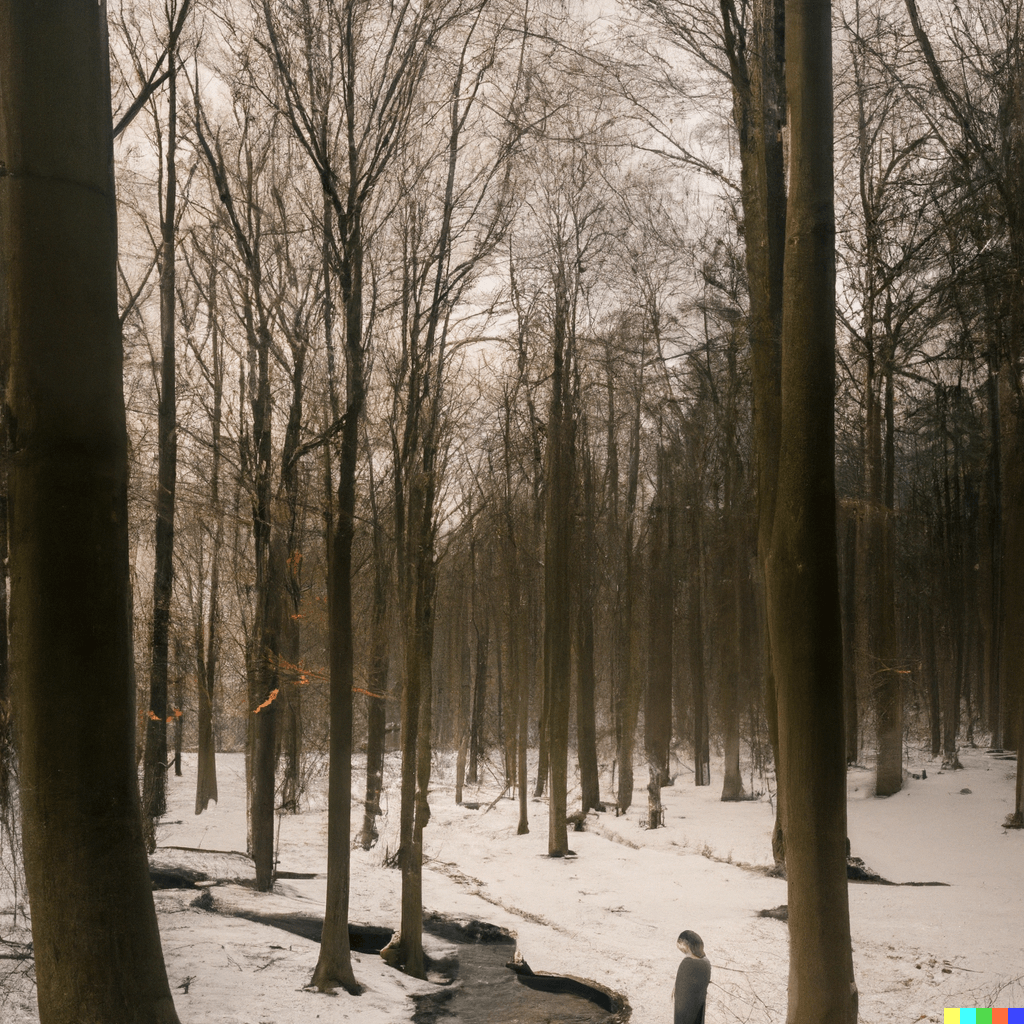Whose woods these are I think I know.
His house is in the village, though;
He will not see me stopping here
To watch his woods fill up with snow.
My little horse must think it queer
To stop without a farmhouse near
Between the woods and frozen lake
The darkest evening of the year.
He gives his harness bells a shake
To ask if there is some mistake.
The only other sound’s the sweep
Of easy wind and downy flake.
The woods are lovely, dark and deep,
But I have promises to keep,
And miles to go before I sleep,
And miles to go before I sleep.
Short Poem Analysis
"Stopping by Woods on a Snowy Evening" by Robert Frost is a contemplative and introspective poem that captures a moment of stillness and reflection in the midst of a snowy landscape. Through its simple language, vivid imagery, and subtle symbolism, the poem explores themes of solitude, duty, and the allure of nature.
The poem's setting is a snowy evening in a rural landscape, where the speaker pauses to observe the tranquil scene. The description of the "woods" and "frozen lake" creates a sense of serene beauty and stillness, inviting the reader to share in the speaker's contemplation.
The repetition of the final line, "And miles to go before I sleep," reinforces the theme of duty and responsibility. While the speaker is drawn to the tranquility of the woods, there is a recognition of the obligations that remain unfulfilled, symbolized by the "promises" to keep.
The poem's symbolism is open to interpretation. The "woods" can be seen as a metaphor for the allure of a contemplative life away from society's demands, while the "darkest evening of the year" might symbolize a point of introspection and uncertainty.
Frost's use of simple language contributes to the poem's accessibility and universal appeal. The poem's rhythmic and rhyming scheme, combined with its repetitive lines, creates a meditative and almost hypnotic quality that mirrors the quiet scene it describes.
"Stopping by Woods on a Snowy Evening" is often read as a reflection on the tensions between personal desires and societal obligations. The contrast between the peaceful winter landscape and the speaker's acknowledgment of responsibilities invites readers to consider the choices and commitments that shape their lives. The poem captures a moment of contemplation and the complex emotions that arise when faced with the pull of solitude and the call of duty.

